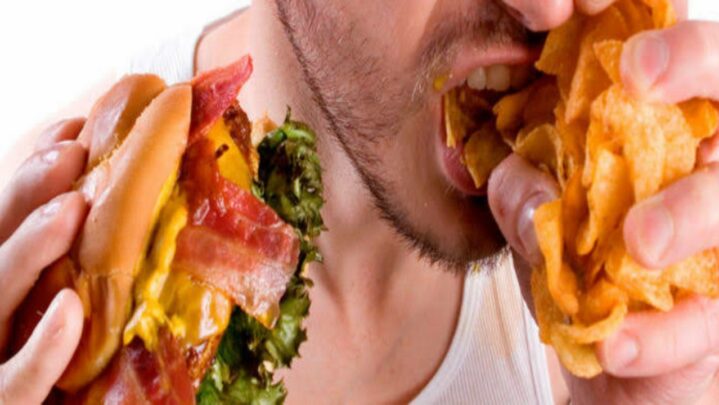The notion that a person might get hooked on eating is gaining popularity. This is based on brain imaging and other research into the impact of compulsive overeating on the brain’s pleasure centres. Experiments in animals and humans demonstrate that food, particularly highly delicious foods, can engage the same reward and pleasure areas of the brain that are triggered by addictive narcotics like cocaine and heroin. Sugar, fat, and salt-rich diets are highly appetising.
Highly appealing foods, like addictive substances, cause the release of feel-good brain chemicals like dopamine. People quickly feel the need to eat again after experiencing pleasure associated with increased dopamine transmission in the brain’s reward circuit as a result of consuming particular meals.
Food addicts will continue to consume despite negative outcomes such as weight gain or strained relationships. People who are hooked on food, like those who are addicted to drugs or gambling, will have difficulty ceasing their behaviour, even if they wish to or have tried many times to do so.
Numerous indications and symptoms can be used to identify this Eating Disorder. The following are some of the signs and symptoms of food addiction as mentioned by Eating Disorder Hope:
1. Taking in more food than one’s body can handle.
2. Overeating to the point of sickness.
3. Making special efforts to procure certain foods.
4. Even if you’re not hungry, you keep eating particular things.
5. Isolation, eating in secret.
6. Spending time eating certain foods rather than engaging in social interactions, relationships, or functions.
7. Due to decreasing efficiency, it is difficult to perform in a vocation or employment.
8. Investing a considerable amount of money in the purchase of specific meals for the goal of bingeing.
9. Chronic weariness and a lack of energy.
10. Concentrating is a challenge.
11. Restlessness, Irritability, Headaches, Digestive disorders, Suicidal ideations
Treatment
Food addiction may be keeping you from living the life you once did, but there is always the potential of recovery. You can get the resources you need to effectively address your food addiction by obtaining the help and care you require.
There are specialised food addiction treatment programmes that can assist you in taking a holistic and comprehensive approach to this condition. Food addiction treatment centres provide multi-speciality care that focuses on and addresses physical and nutritional issues while also including psychotherapy.
Trying to deal with your food addiction on your own may cause you to feel even more fearful and isolated. An eating disorder centre, expert, or support group that specialises in food addiction can assist you or a loved one with the tools and resources they need to recover and heal from food addiction.
Keep reading SuccessYeti.com
Also Read: How to overcome your addiction to food





